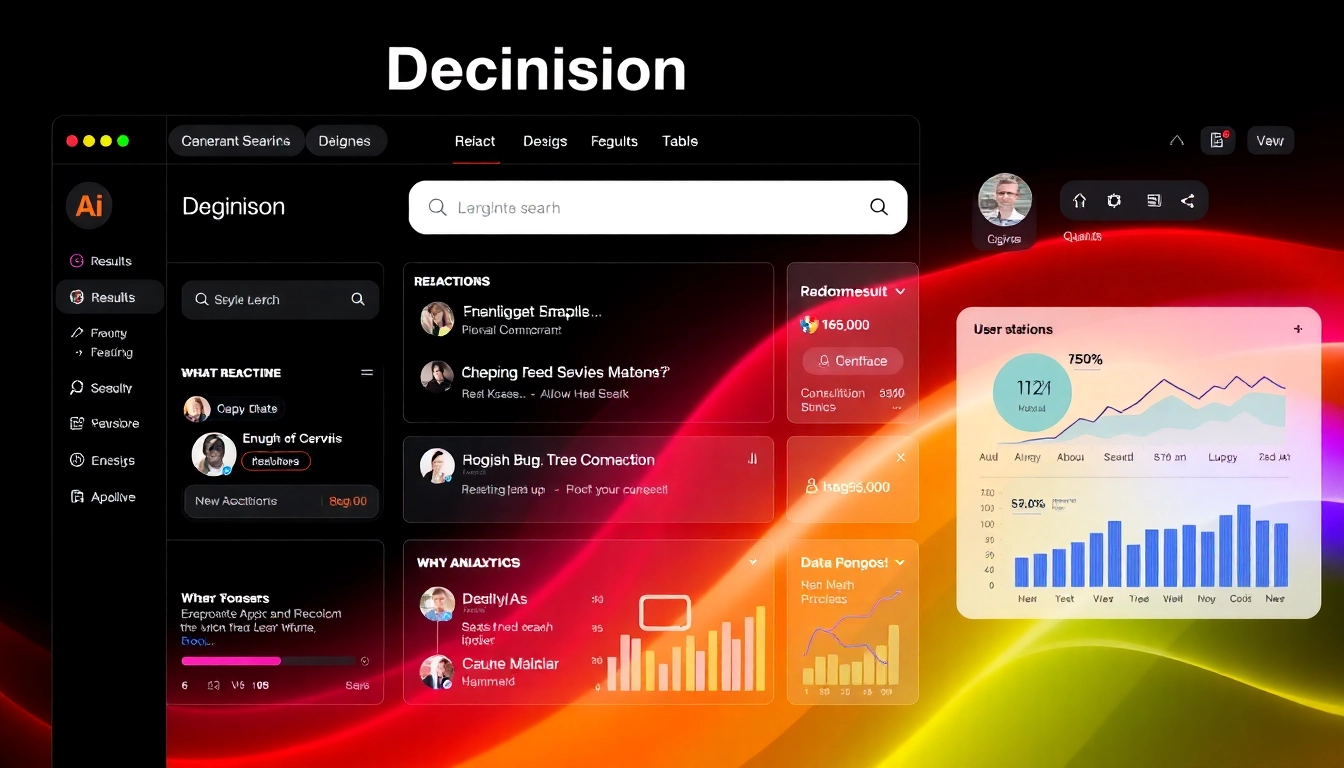Introduction to AI Opinion Search
In today’s data-driven world, the ability to rapidly access and interpret vast amounts of information is critical for researchers, academics, and professionals alike. At the forefront of this necessity is the development of AI Opinion search, an innovative tool designed to sift through extensive databases and deliver nuanced insights based on user queries. This technology is not just about finding information; it’s about understanding context, relevance, and the myriad of opinions that exist within the body of research.
Understanding the Concept
AI Opinion Search represents a sophisticated integration of artificial intelligence with information retrieval systems. Rather than merely providing links and snippets from databases, it parses through academic journals, articles, and papers to extract opinions, analyses, and data-backed conclusions from multiple sources. This functionality enables users to understand not just the facts, but also the spectrum of perspectives surrounding a topic, thus enhancing their comprehension of complex subjects.
Importance in Modern Research
The importance of AI Opinion Search becomes evident when considering the sheer volume of publications produced each year. According to the UNESCO Institute for Statistics, over 2.5 million academic articles are published annually. For researchers, sifting through this information can be overwhelming. AI Opinion Search systems streamline this process, ensuring that users can efficiently obtain relevant insights that might otherwise be buried under layers of data.
Common Use Cases
AI Opinion Search is utilized in various fields, including:
- Academic Research: Scholars leverage AI tools to uncover diverse opinions in literature reviews, enhancing the robustness of their citations.
- Market Research: Businesses use these systems to gauge public sentiment, gather competitive insights, and understand consumer behavior through opinions documented in articles and studies.
- Policy Development: Governments and NGOs apply AI-powered searches to assimilate various viewpoints during the legislation process, ensuring more rounded policymaking.
How AI Opinion Search Works
Algorithm Functionality
The functioning of AI Opinion Search fundamentally relies on advanced algorithms that interpret and analyze texts. These algorithms typically employ natural language processing (NLP) techniques, allowing them to understand not just the words used but also the context and sentiment behind them. By classifying information based on tone, bias, and corroborative data, these algorithms can rank opinions based on relevance to the user’s query.
Data Analysis Techniques
Various data analysis techniques are integral to the operation of AI Opinion Search, including:
- Sentiment Analysis: This involves determining the emotional tone behind a body of text, allowing users to discern positive, negative, or neutral sentiments in opinions.
- Topic Modeling: Using algorithms such as Latent Dirichlet Allocation (LDA), AI can identify clusters of documents that discuss similar topics, providing users with a thematic overview of relevant research.
These analytical techniques ensure the information retrieved is not only comprehensive but also actionable, guiding users toward the most pertinent data in their search.
User Interaction Models
AI Opinion Search also integrates interactive user models to enhance the experience. Users can engage with the system by providing feedback on the relevance of responses, which helps refine future searches. Additionally, features like chat interfaces allow users to pose queries in natural language, making the interaction seamless and intuitive. This conversational approach to search ensures that users feel more connected to the technology, ultimately facilitating deeper research engagement.
Benefits of Using AI Opinion Search
Enhancing Research Efficiency
One of the standout advantages of leveraging AI Opinion Search is the remarkable enhancement of research efficiency. Researchers can swiftly access a curated selection of opinions without spending hours combing through multiple sources. This efficiency not only saves time but also allows for quick pivoting to new ideas or perspectives, fostering a more dynamic research process.
Improving Accuracy and Relevance
AI Opinion Search systems provide a refined approach to information gathering, as the algorithms prioritize accuracy and relevance. By analyzing vast datasets and discerning high-quality sources, these systems ensure that the information presented to users is credible and trustworthy. This heightened accuracy helps researchers base their conclusions on solid ground, reducing the likelihood of disseminating misinformation.
Facilitating Easier Access to Information
With AI Opinion Search, users have unparalleled access to a wealth of knowledge that may not be readily available through traditional search engines. This democratization of information allows students, researchers, and professionals from all backgrounds to engage with academic literature they may have previously found daunting. The result is a more informed public equipped to tackle complex questions across various domains.
Challenges and Limitations
Data Quality and Authenticity
Despite the advances in AI Opinion Search, challenges regarding data quality and authenticity persist. The reliability of output is only as good as the underlying data it analyzes. If the sources utilized are flawed or biased, the conclusions drawn may reflect those inaccuracies. It’s essential for users to be mindful of the origins of information and to cross-reference findings with reputable sources.
User Trust and Acceptance
User trust plays a pivotal role in the adoption of AI Opinion Search technologies. There is often skepticism about AI’s ability to provide balanced opinions without bias. To counteract this, developers must prioritize transparency in how data is sourced, how opinions are generated, and how algorithms function. Building a trustworthy platform will be vital for widespread acceptance of these tools in the academic and professional sectors.
Regulatory and Ethical Considerations
The regulatory landscape surrounding AI technologies is evolving, with growing scrutiny around privacy, data usage, and ethical implications. AI Opinion Search must navigate these challenges to ensure compliance with data protection laws while maintaining user confidentiality. Ethical considerations also come to the fore regarding the representation of varied opinions; systems must strive to avoid amplifying biases prevalent in sourced materials.
The Future of AI Opinion Search
Upcoming Innovations
The future of AI Opinion Search promises to be dynamic, with innovations continually reshaping its capabilities. Advancements in deep learning and neural networking will likely enhance the sophistication of algorithms, enabling even finer discernment of opinion nuances. Integrating multi-modal data inputs (e.g., video, images, and audio) could further enrich user engagement and the breadth of perspectives available through these search tools.
Potential Market Growth
The market for AI Opinion Search is poised for significant growth as more sectors recognize its value. Educational institutions, research organizations, and corporations are increasingly investing in AI-driven tools to support their decision-making processes. As awareness of these technologies spreads, we can expect a surge in demand, leading to further investment in research and development.
Impact on Academic and Commercial Sectors
The impact of AI Opinion Search on both academic and commercial sectors will be profound. In academia, it stands to transform how literature reviews are conducted, potentially leading to more comprehensive and diverse understandings of topics. In the commercial realm, businesses utilizing these tools will gain insights into shifting consumer sentiments, competitive landscapes, and emerging trends, thereby positioning themselves better in the market.



